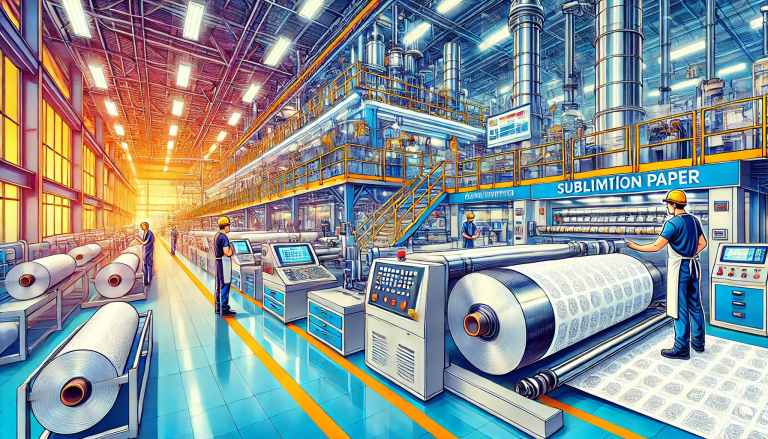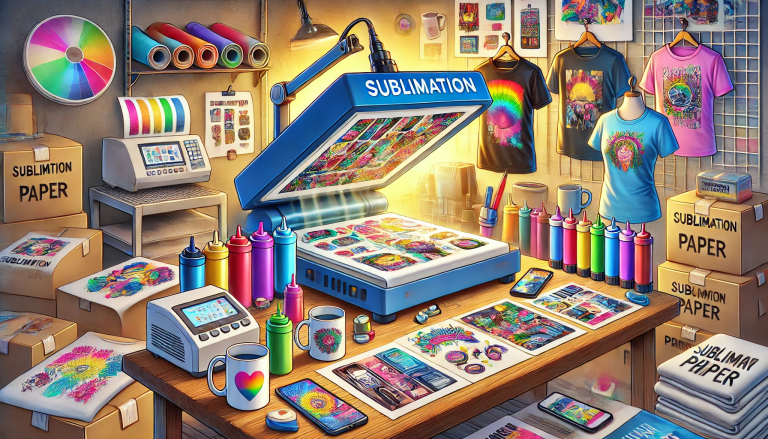“Bring Your Designs to Life with Dye Sublimation Heat Paper – No More Disappointing Results!” – SUBLIMATIONTRANSFERPAPER – Quick Dry Inkjet Sublimation Paper Supplier, Sublimation Transfer Paper Sheet Manufacturer, Made in China
Introduction
Dye sublimation heat paper is a great way to transfer images onto fabric, but sometimes it doesn’t work as expected. If you’ve ever experienced this, you may be wondering why your dye sublimation heat paper didn’t work. In this article, we’ll discuss some of the common reasons why dye sublimation heat paper may not work, as well as some tips for troubleshooting the issue.
Exploring the Benefits of Dye Sublimation Heat Transfer Printing for Your Business
Dye sublimation heat transfer printing is a popular method of printing that is used in a variety of industries. This type of printing is known for its high-quality results and its ability to produce vibrant colors and intricate designs. It is also a cost-effective solution for businesses that need to produce large quantities of printed materials. In this article, we will explore the benefits of dye sublimation heat transfer printing for businesses.
One of the main advantages of dye sublimation heat transfer printing is its ability to produce high-quality results. This type of printing uses a special type of ink that is heated and then transferred onto the material being printed. This process ensures that the colors are vibrant and the details are sharp. Additionally, the ink is resistant to fading and smudging, making it ideal for long-term use.
Another benefit of dye sublimation heat transfer printing is its cost-effectiveness. This type of printing is much less expensive than traditional printing methods, making it a great option for businesses that need to produce large quantities of printed materials. Additionally, the cost of the ink used in this type of printing is much lower than other types of ink, making it an even more cost-effective solution.
Finally, dye sublimation heat transfer printing is a great option for businesses that need to produce intricate designs. This type of printing allows for detailed designs to be printed onto a variety of materials, including fabrics, plastics, and metals. This makes it an ideal choice for businesses that need to produce custom products or promotional materials.
In conclusion, dye sublimation heat transfer printing is a great option for businesses that need to produce high-quality printed materials in large quantities. This type of printing is cost-effective and produces vibrant colors and intricate designs. For these reasons, it is an excellent choice for businesses that need to produce printed materials for promotional purposes or custom products.
Understanding the Basics of Dye Sublimation Heat Transfer Printing
Dye sublimation heat transfer printing is a popular method of printing that is used to create vibrant, full-color images on a variety of materials. This printing process involves transferring dye onto a substrate using heat and pressure. The result is a durable, long-lasting image that is resistant to fading and scratching.
The process of dye sublimation heat transfer printing begins with the creation of a digital image. This image is then printed onto a special transfer paper using a sublimation printer. The transfer paper is then placed onto the substrate, which can be a variety of materials such as fabric, metal, ceramic, or plastic. Heat and pressure are then applied to the transfer paper, which causes the dye to be transferred onto the substrate.
The heat and pressure used in the dye sublimation heat transfer printing process cause the dye to become a gas, which is then absorbed into the substrate. This process creates a permanent bond between the dye and the substrate, resulting in a durable, long-lasting image. The image is also resistant to fading and scratching, making it ideal for a variety of applications.
Dye sublimation heat transfer printing is a great way to create vibrant, full-color images on a variety of materials. The process is relatively simple and the results are durable and long-lasting. This makes it an ideal choice for a variety of applications, from apparel to signage.
Troubleshooting Common Problems with Dye Sublimation Heat Paper
Dye sublimation heat transfer paper is a popular choice for printing vibrant, full-color designs onto a variety of fabrics. However, as with any printing process, there are potential issues that can arise. Here are some of the most common problems encountered when using dye sublimation heat transfer paper and how to troubleshoot them.
Incorrect Color: If the colors of your printed design are not accurate, the most likely cause is a mismatch between the color profile of your design file and the color profile of your printer. To fix this, make sure that the color profile of your design file matches the color profile of your printer.
Poor Image Quality: If the image quality of your printed design is poor, the most likely cause is a low-resolution image. To fix this, make sure that the resolution of your design file is at least 300 dpi.
Incorrect Print Size: If the size of your printed design is incorrect, the most likely cause is a mismatch between the size of your design file and the size of your printer. To fix this, make sure that the size of your design file matches the size of your printer.
Incorrect Heat Settings: If the colors of your printed design are not accurate, the most likely cause is incorrect heat settings. To fix this, make sure that the heat settings of your printer are set to the recommended settings for the type of fabric you are printing on.
These are some of the most common problems encountered when using dye sublimation heat transfer paper. By following the troubleshooting tips outlined above, you should be able to quickly and easily resolve any issues you may be having.
Conclusion
In conclusion, there are a variety of reasons why your dye sublimation heat paper may not have worked. It could be due to the type of paper you used, the temperature of the heat press, the amount of time the paper was exposed to heat, or the type of ink used. It is important to ensure that all of these factors are taken into consideration when using dye sublimation heat paper to ensure the best results.




